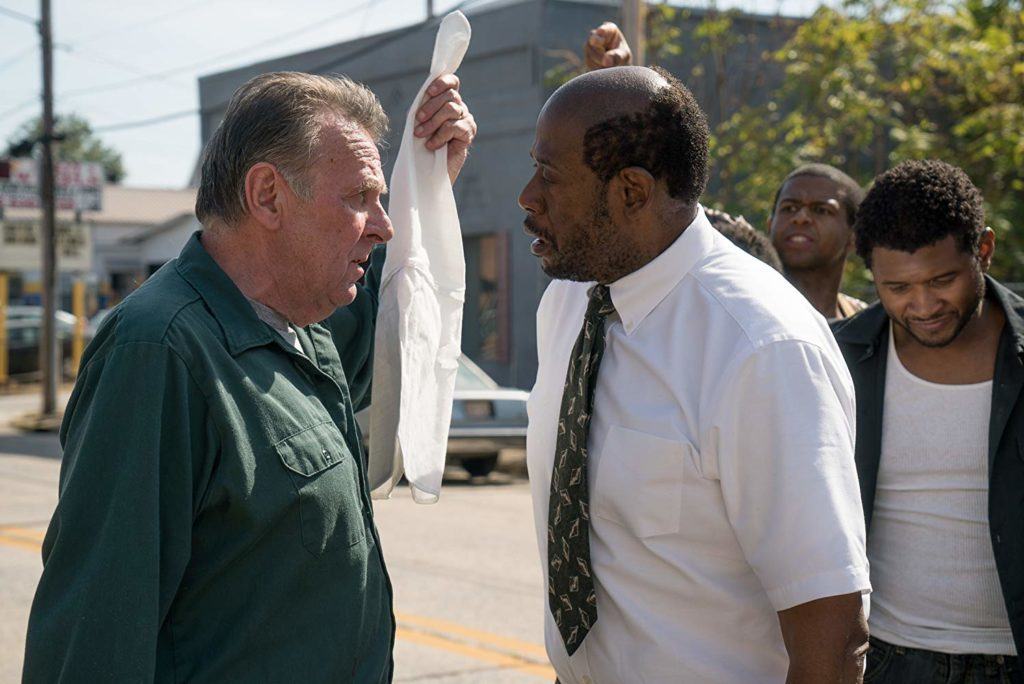Burden

Tom Wilkinson and Forest Whitaker star in BURDEN. (Photo: 101 Studios)
Viewed within our current climate of sociopolitical and ideological division, Burden is unsettling primarily because it depicts appalling true-life events in the too-recent past.
Yet despite that haunting contemporary resonance, this emotionally charged biopic of a reformed Klan member fails to significantly enliven that provocative backdrop beyond a derivative approach that lacks subtlety and depth.
The story takes place in a small South Carolina town in 1996, when the local Ku Klux Klan leader (Tom Wilkinson) opens a KKK museum next door to his already controversial Redneck Shop — a badge he wears proudly. His followers include Mike Burden (Garrett Hedlund), a loose-cannon repo man who grew up attending multicultural schools but has since gravitated toward white supremacy.
That begins to change when he meets Judy (Andrea Riseborough), a single mother with a considerably more progressive outlook on race relations and civil rights. So as their relationship deepens, Mike’s path to redemption is fraught with economic obstacles, emotional conflict, and petty retaliation.
Mike’s resolve is further tested when he accepts an invitation for shelter from Rev. Kennedy (Forest Whitaker), a local black preacher who has been waging nonviolent protests against the Klan for years. Just as Mike’s former connections feel betrayed by him, so do the members of Kennedy’s congregation, who condemn his sudden peace offering to Mike in the name of racial harmony.
Burden marks an earnest and heartfelt directorial debut for character actor Andrew Heckler, who spent more than two decades bringing this labor of love to the screen. His evocative visuals capture the Deep South setting with conviction.
Hedlund’s committed performance offers more texture and nuance than the character might suggest on the surface. However, too many of the periphery characters are thinly sketched, reflecting the tendency of Heckler’s screenplay to reduce its examination of complex issues to simple black-and-white.
The film invites discussion about the intrinsic relationship between spirituality and belief systems on both sides, as a rhetorical vessel for both segregation and equality, love and hate. Likewise, the worthwhile sentiment about fighting back through compassion instead of violence shines through.
It’s all well-intentioned, of course, and should get your blood boiling even if the film’s ambition seems to exceed its oversimplified and sometimes overwrought narrative grasp.
Rated R, 117 minutes.